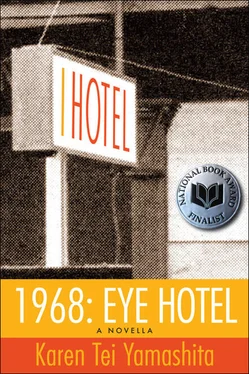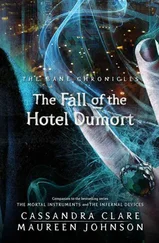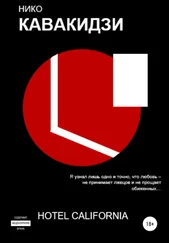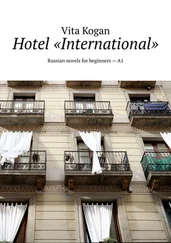“Why have you have stopped writing?” Chen questions his old mentor. Again, Chen asks an empty question for which he already knows the answer, but he wants to hear his teacher’s words.
“My writing is out of touch with the people.” He picks up a copy of Hao Ran’s Broad Road in Golden Light from one of Chen’s stacks and peruses the cover.
Hao Ran himself sits in the same room only a week earlier. Chen interviews the popular writer who, if it really mattered, could claim that several million copies of his new novel were sold in a matter of weeks. People are hungry to read, and these days anyone can afford the thirty-two cents it costs to buy a book. Royalties are irrelevant; Hao Ran tells Chen he is a “worker in the field of literature.” He is of the generation of writers after the old teacher.
The old teacher sits on the edge of Chen’s bed and removes his cap. “My writing is not what is required these days.” He replaces Hao Ran’s book on another tall stack. It is Hao Ran, a peasant cadre who learns to read during the war of liberation, who now represents the spirit and the realization of the Yenan Forum in 1942, where Chairman Mao declares that there is no such thing as art for art’s sake—that all literature and art are for the masses of the people, for the workers, peasants, and soldiers.
Chen leans forward from his chair. “I’m reminded of the last time I saw you. I was seated on the edge of your bed in that small room you occupied near the university. In fact, the bed was covered with books. I think you slept on top of them.”
The old teacher smiles. “Nothing has changed. I still sleep on a bed of books.”
“I remember you joking. You said: ‘The able join the revolution, the wise become government officials, but only fools want to become writers.’”
“Did I say that?” He scratches his head.
“Do you still collect antiques?” Chen recalls his teacher’s extraordinary collection of jade and porcelain, but especially his collection of handmade paper dating back to the tenth-century Sung Dynasty.
“I don’t have to. I work for the museum.”
“And your collection?”
“I gave it to the museum. It was best to share this treasure with the people.”
“Tell me about your work.”
“We are the receiving center for archeological finds sent in from all over the country. As buildings and industries go up, more and more excavations are taking place. We collect and classify this material and prepare it for storage.”
“Storage?”
“Yes, it’s a shame we don’t have more skilled students in museum work. We can hardly manage the task. Curating the material for display is next to impossible. So much is hidden away.”
“Your collection included.”
The old teacher nods. It is only a few years ago that the students band together as Red Guards. The People’s Army protects the museum to prevent the students from looting it. Chairman Mao speaks to the students in Tiananmen Square, ordering them to smash the four olds: old ideas, old culture, old customs, old habits. The old teacher is dragged from his work classifying old objects taken from an old tomb. The objects are saved, but the old teacher takes his lessons from the Red Guards. When he cannot recite passages from Chairman Mao’s writing, he is sent to stand facing the wall. He can remember the titles of hundreds of books and the dates and origins of every piece in a collection of silk, but he cannot remember what Chairman Mao says about the unity of art and politics.
“While classifying these artifacts, I have been contributing to a meticulous history, for example of Chinese silk. Do you know that we can identify the origin of the silk, the date, the dye, the weaver, and the wearer from a single strand of thread?” The old teacher’s eyes light with excitement. What he describes is the collective work of research based in history, art, and science. Twelve other professors like the old teacher leave the university at the same time to devote their lives to this work.
Chen still pursues his concern about his teacher’s writing. “You are now writing about silk?”
“Yes, we published a history and compilation of forty thousand illustrations.” What is important is to create a record of the craft of silk, the skilled craftspeople and artisans who developed their art and techniques to the highest levels. This record also parallels the movement of people and historic change.
Chen hears the insistent tone in his teacher’s voice, and remembers the same timbre in Hao Ran’s words when describing how a factory worker he didn’t know bicycled a hundred li to tell him what needed to be changed in his novel. “The people have a stake in our literature, and we must learn from them.”
Although Hao Ran is himself a peasant farmer, he lives and works on communes to draw the most accurate portraits of the life and people. And he does not embark upon his first novel until he undergoes a thorough study of the Marxist theory of literature. “I thought finally I was ready to write, but I was told to study the communiqué issued by the 10th Plenary Central Committee of the Communist Party at the end of the 8th Session. Also the Anti-Rightist Movement and the Chairman’s writing on the struggle in 1957. Then there was the material on the Second General Assembly of the Soviet Russian Communist Party on Greater Democracy, championed by Krushchev.” In this study, he grasps the significance of true class struggle and its worldwide implications. Finally Hao Ran is ready to write his novel.
Chen reminisces about his days as a student under his teacher’s tutelage. “I remember when your book of short stories was published. There was so much excitement. I had to fight to get a copy. Your style and approach were entirely new.”
“I remember you had a wall newspaper.”
“That’s right. I posted it weekly on the college wall. There were a number of students who posted. I was mostly interested in poetry in those days.”
“And do you still write?”
“These days my writing is mostly historical and critical, translating Chinese to English, sometimes French.”
“And your poetry?”
“What there is of my poetry is in Chinese, and there is not such a market for it in America.”
They are both quiet for a long moment, each thinking perhaps about their separate destinies. Chen leaves China as an interpreter for the American Army during the war. He marries and divorces his first wife and then a second wife, and eventually he cannot return.
Chen asks about the old teacher’s colleagues. What happened to this or that writer?
“Oh I hear from them from time to time. They are somewhere in Manchuria. They are doing well. You need not worry about them.” Some of these writers are accused of being poisonous weeds, capitalist rightists in support of individualism and leading literature backwards. He changes the subject. “What will you do with all these books?”
“I will take them with me.”
“What will you say about them?”
“That is difficult to say. I hoped to learn from you.”
“Every generation hopes by its literature to leave its mark. My generation is over, and we played our part. The use of literature to rebel is one thing. We thought there was the gun and the pen and that we would be the pen. Yes, the pen can be a revolutionary force and a weapon, but we did not entirely understand what that means. The pen is also used to ensure conformity and political order, and that is as old as Confucius.”
“There are many ways to read.”
“There are many ways to teach one to read. Remember when you lived here, most people in China could not read.”
“And writing? You taught me to write.”
“I taught you nothing. You made your own choices. You came to me educated already in three languages. I was myself not so educated. I am almost entirely self-taught. Do you remember this? You were an extraordinary student.”
Читать дальше












